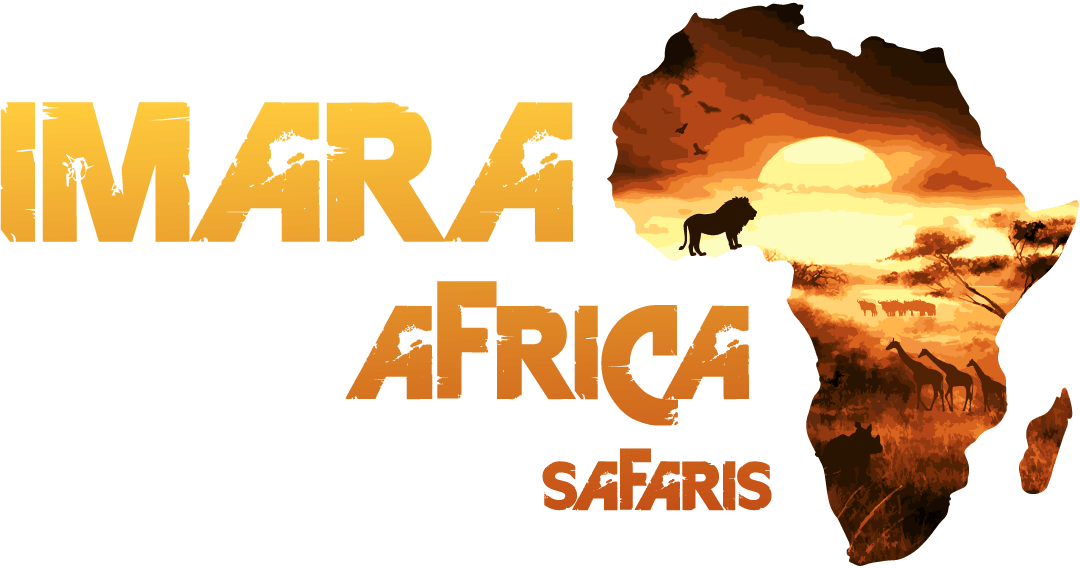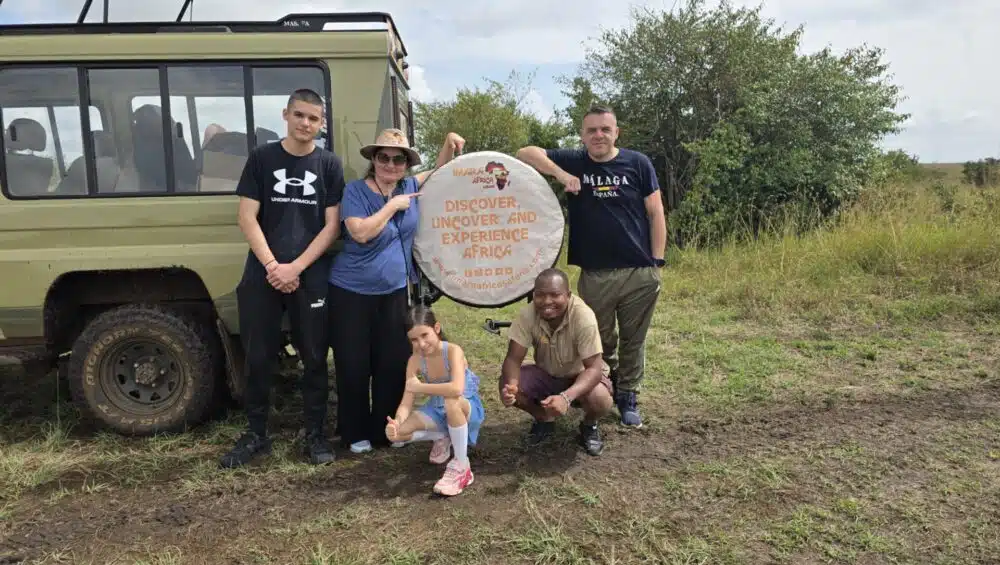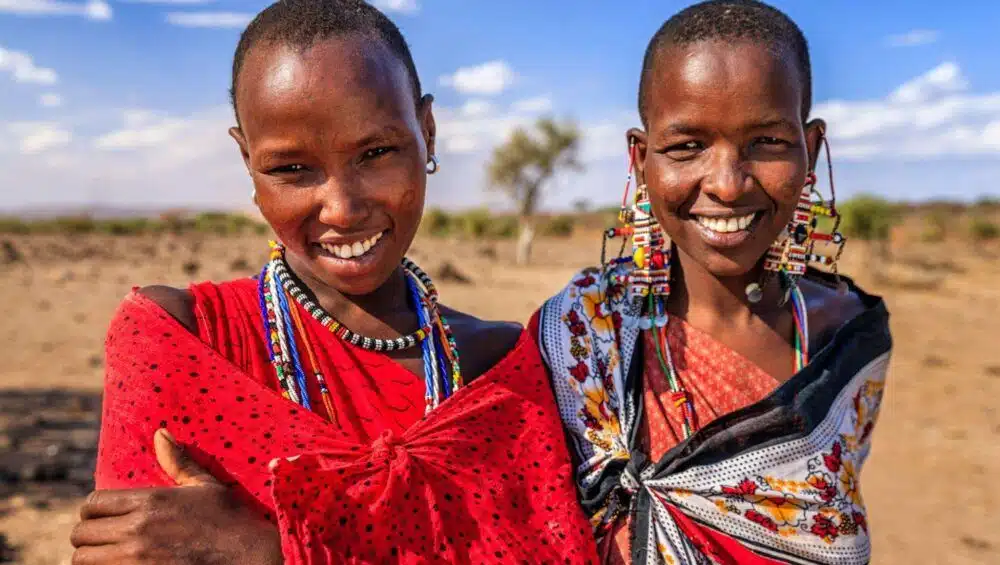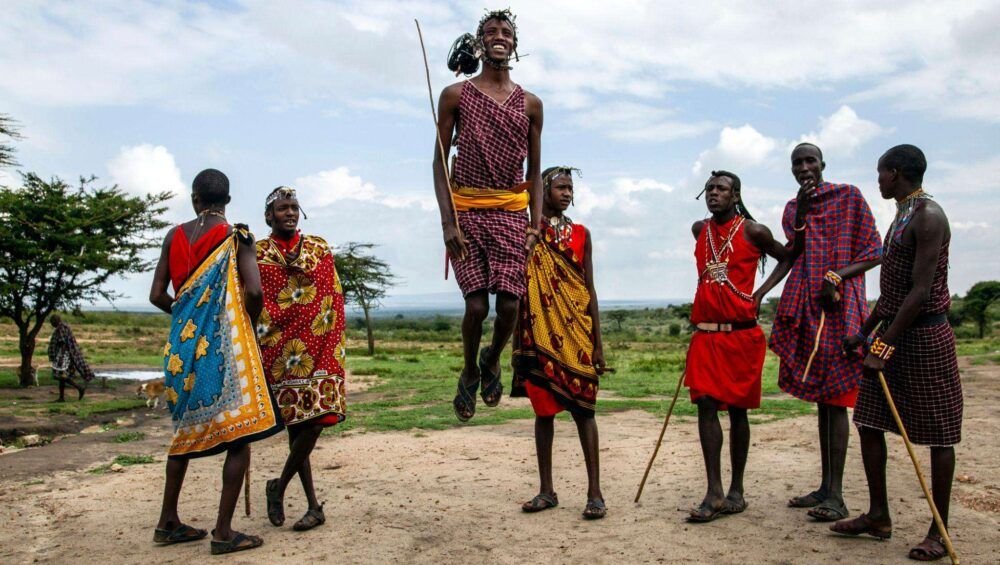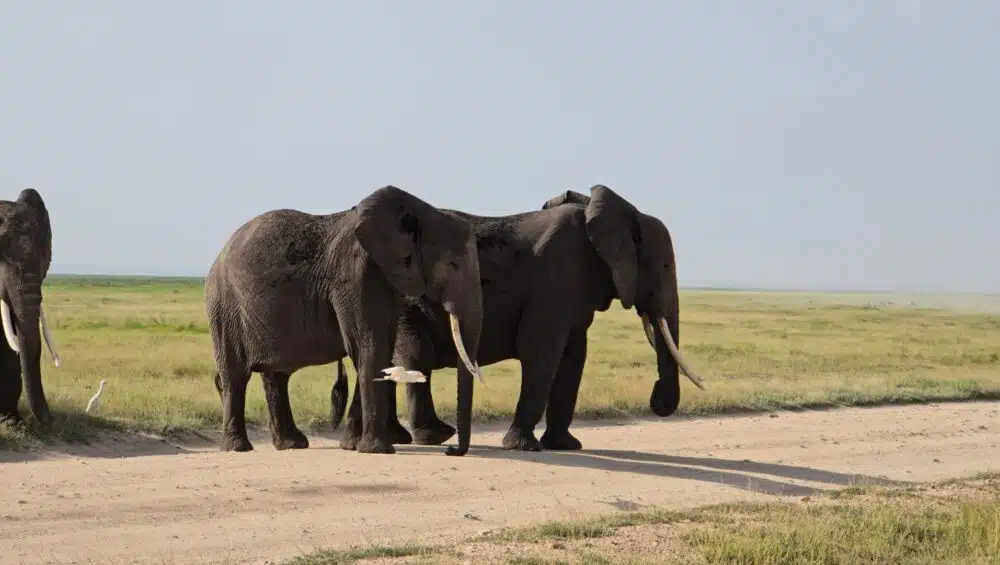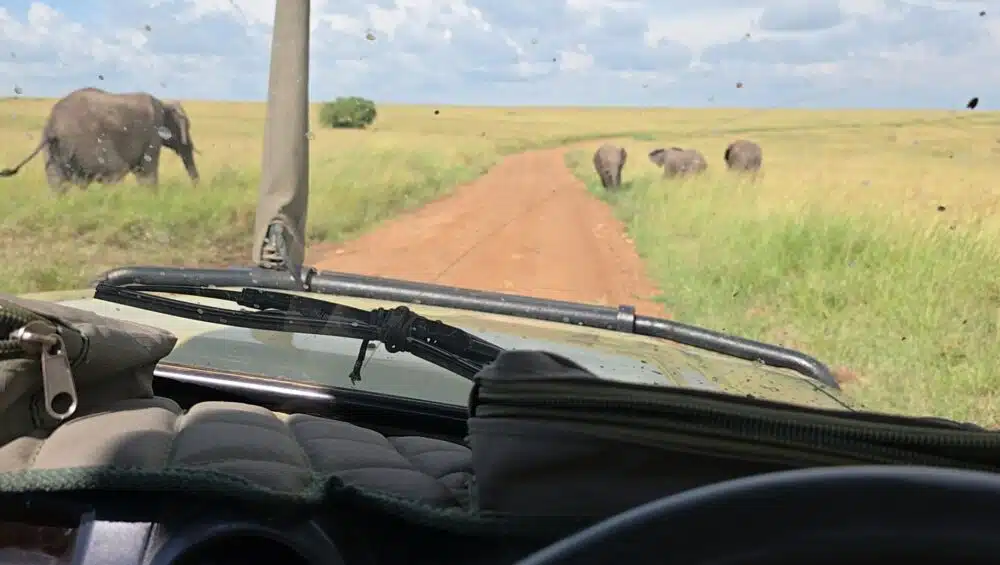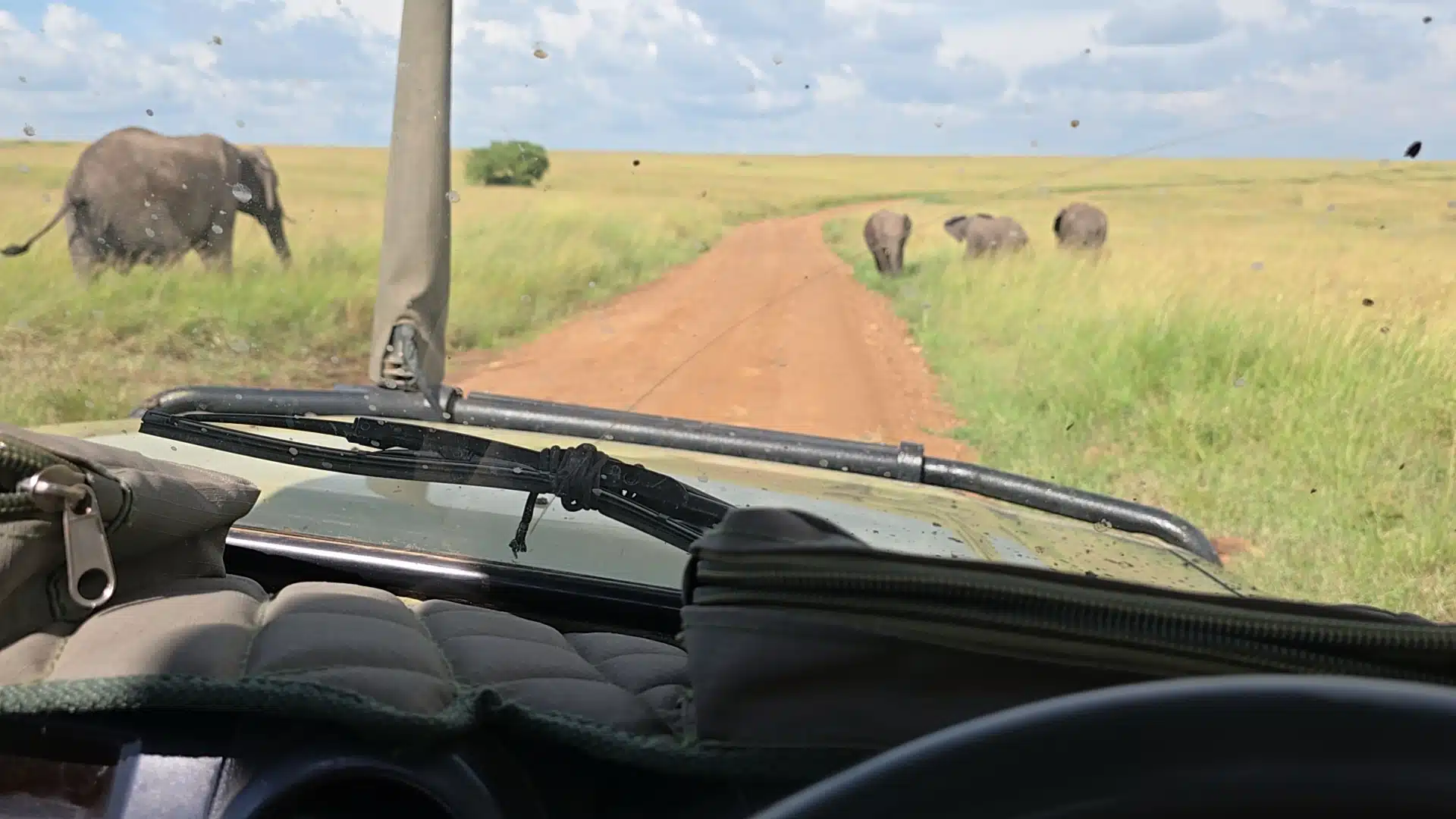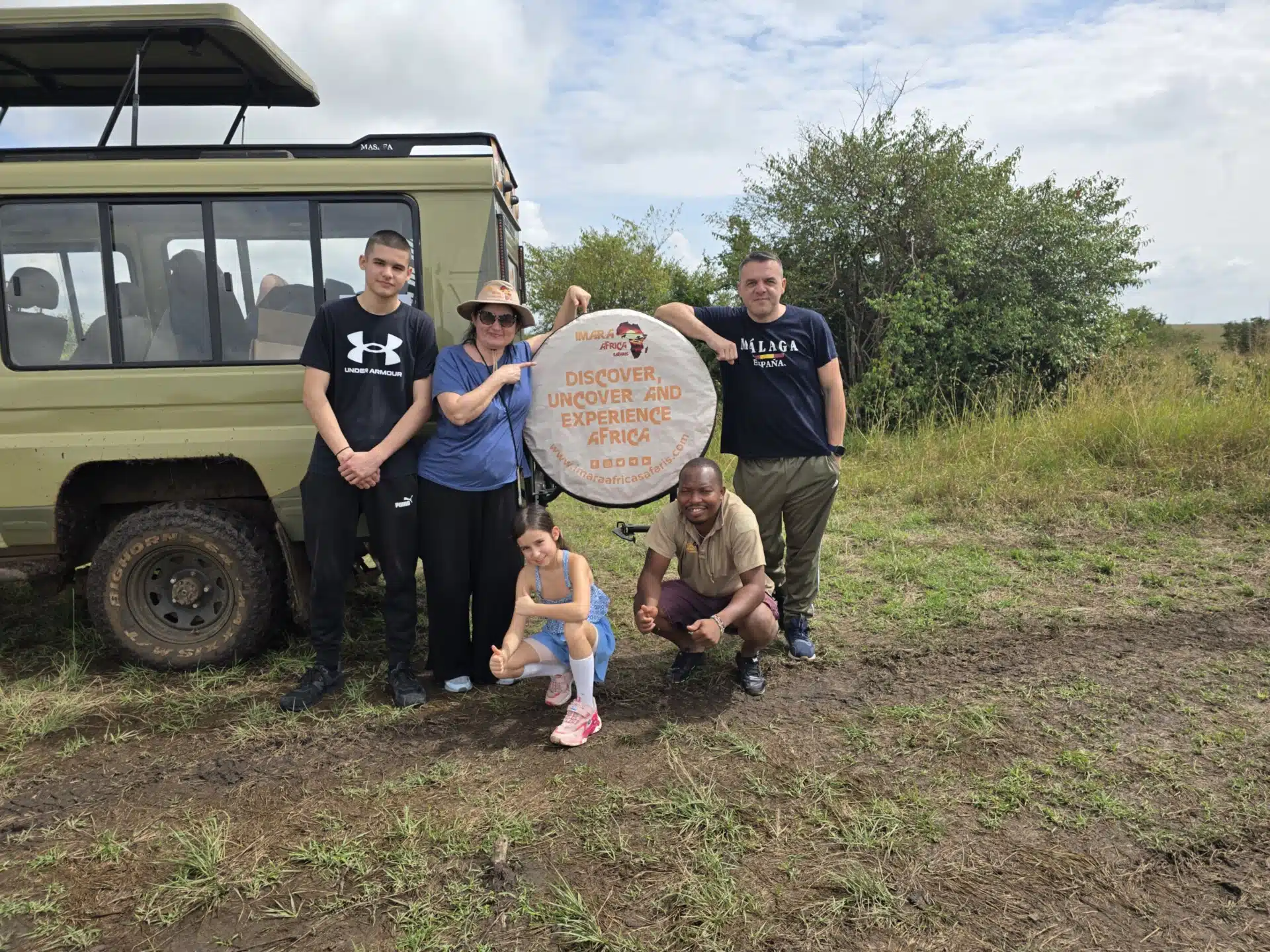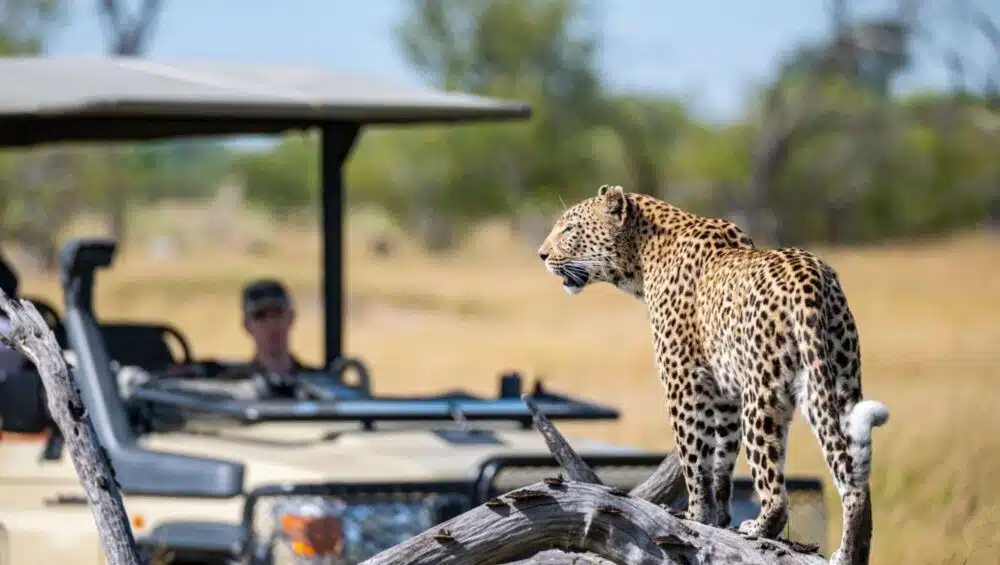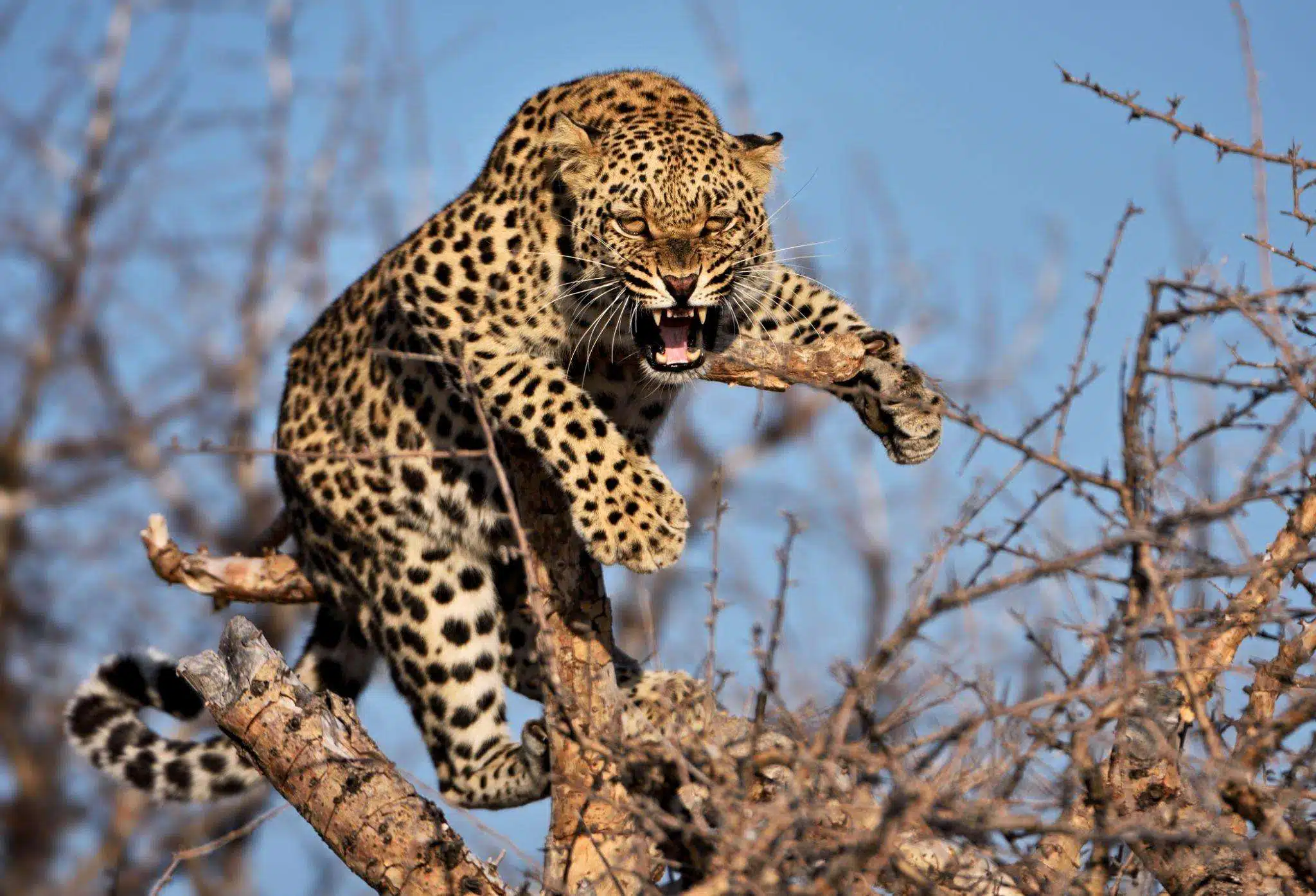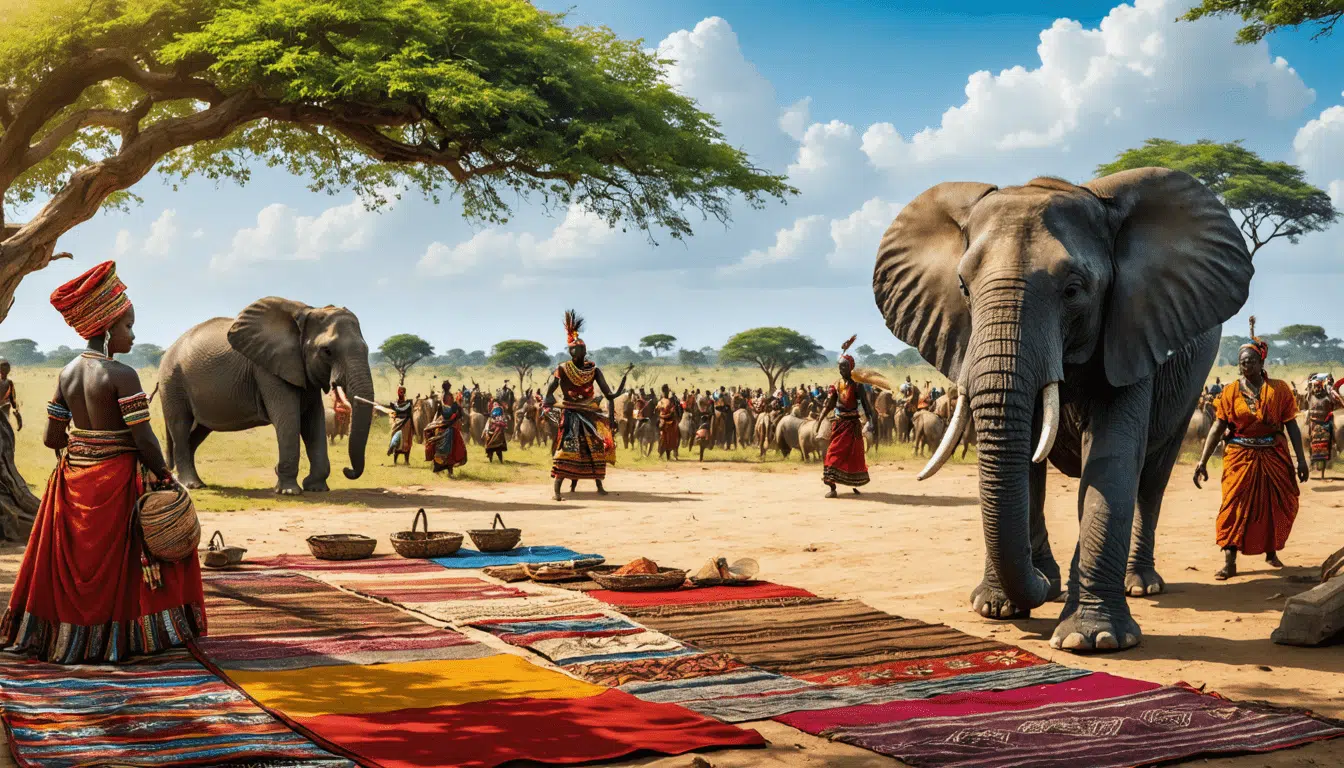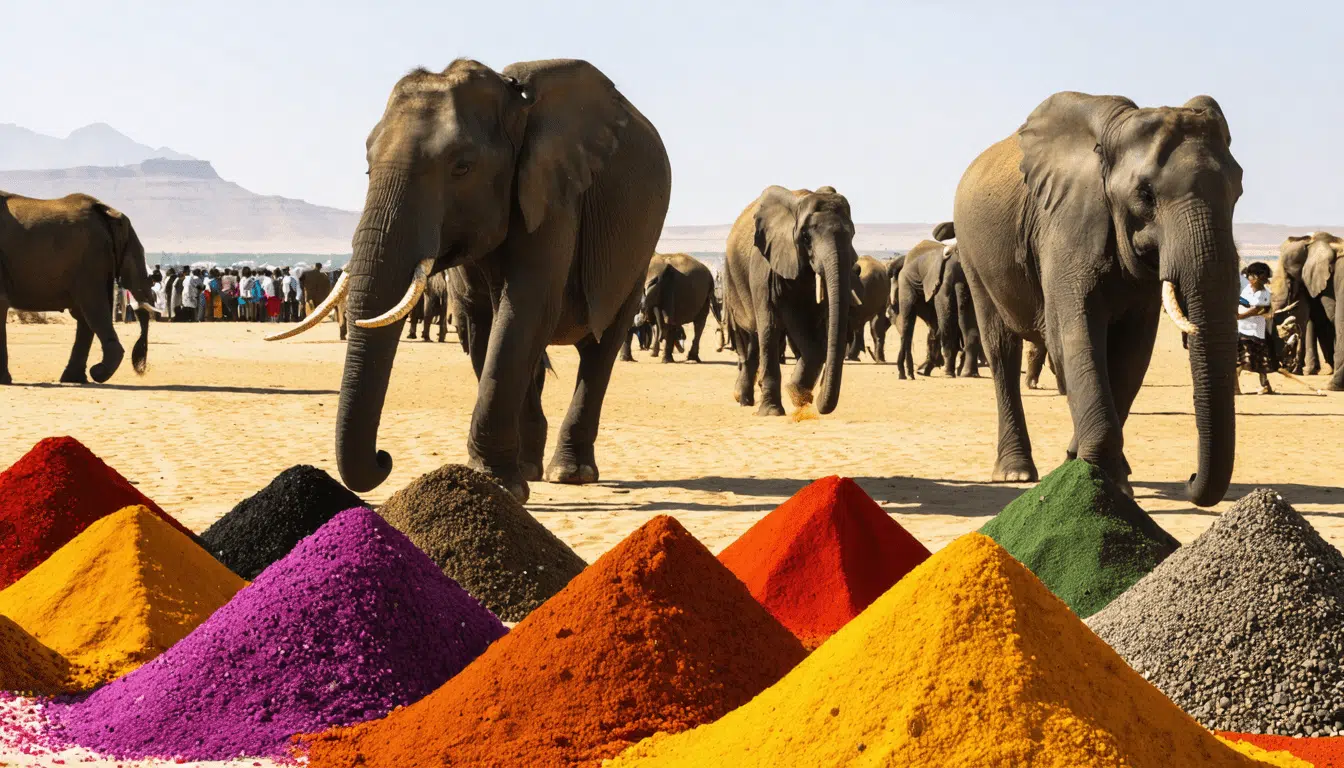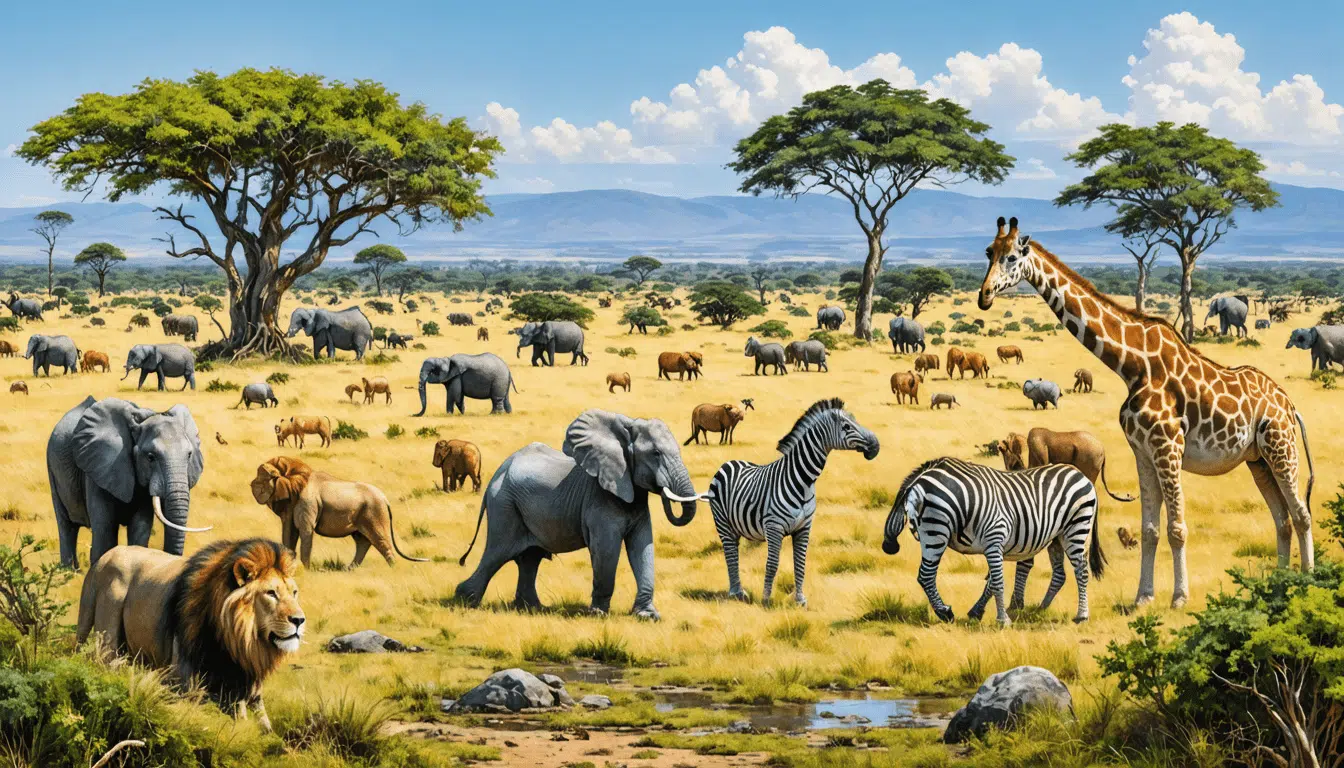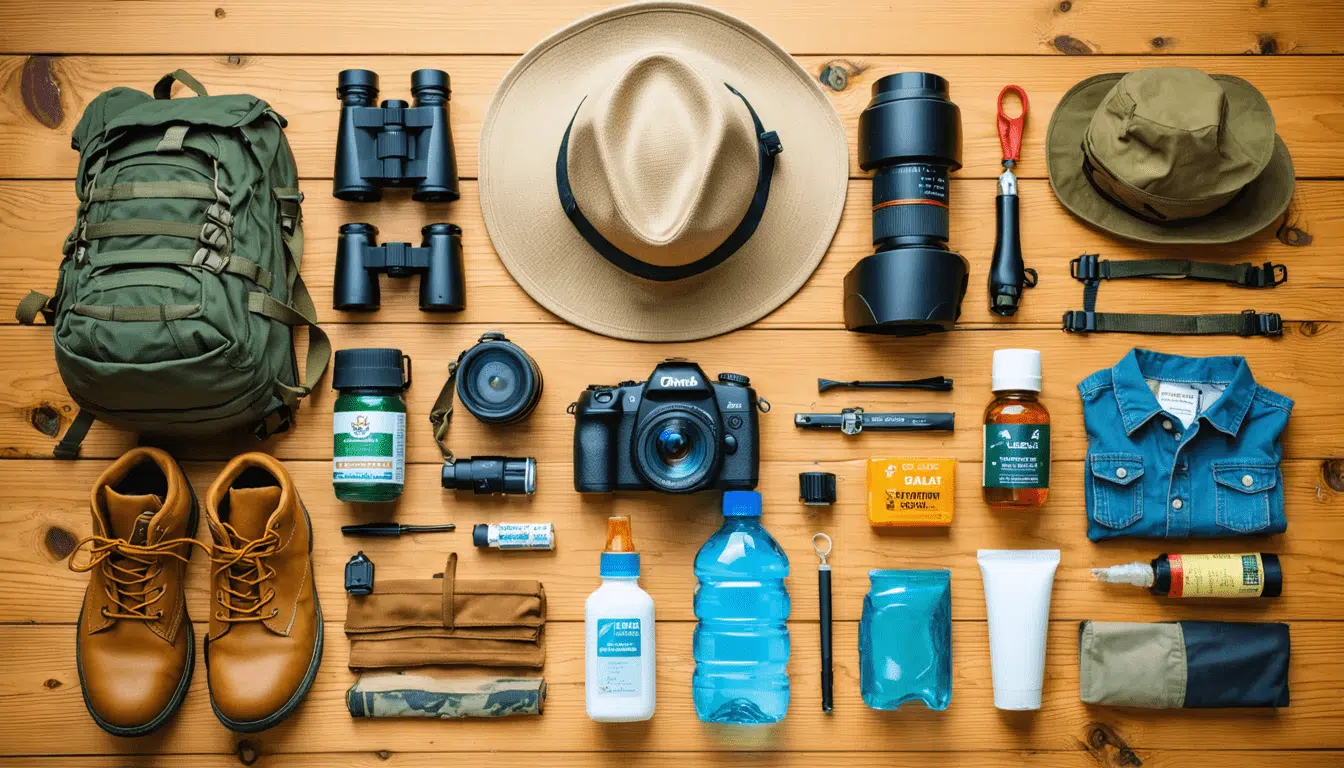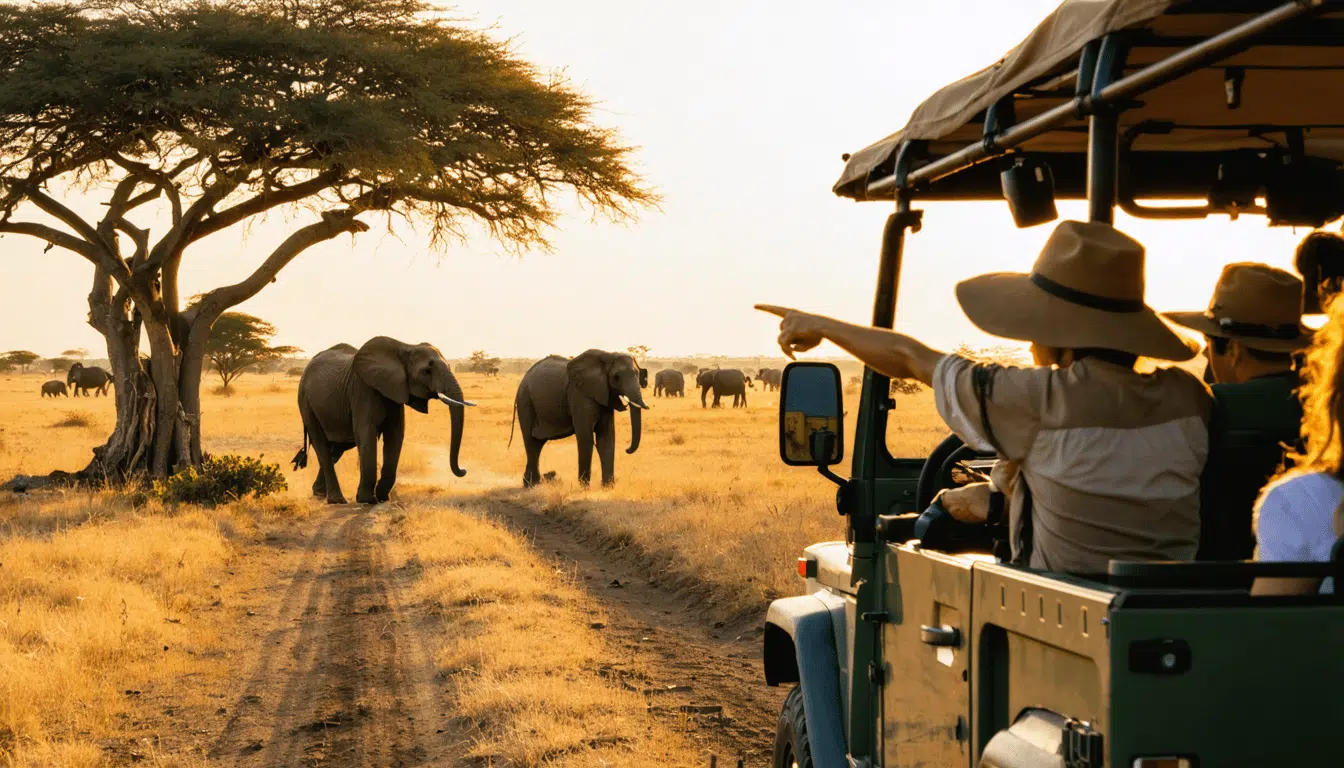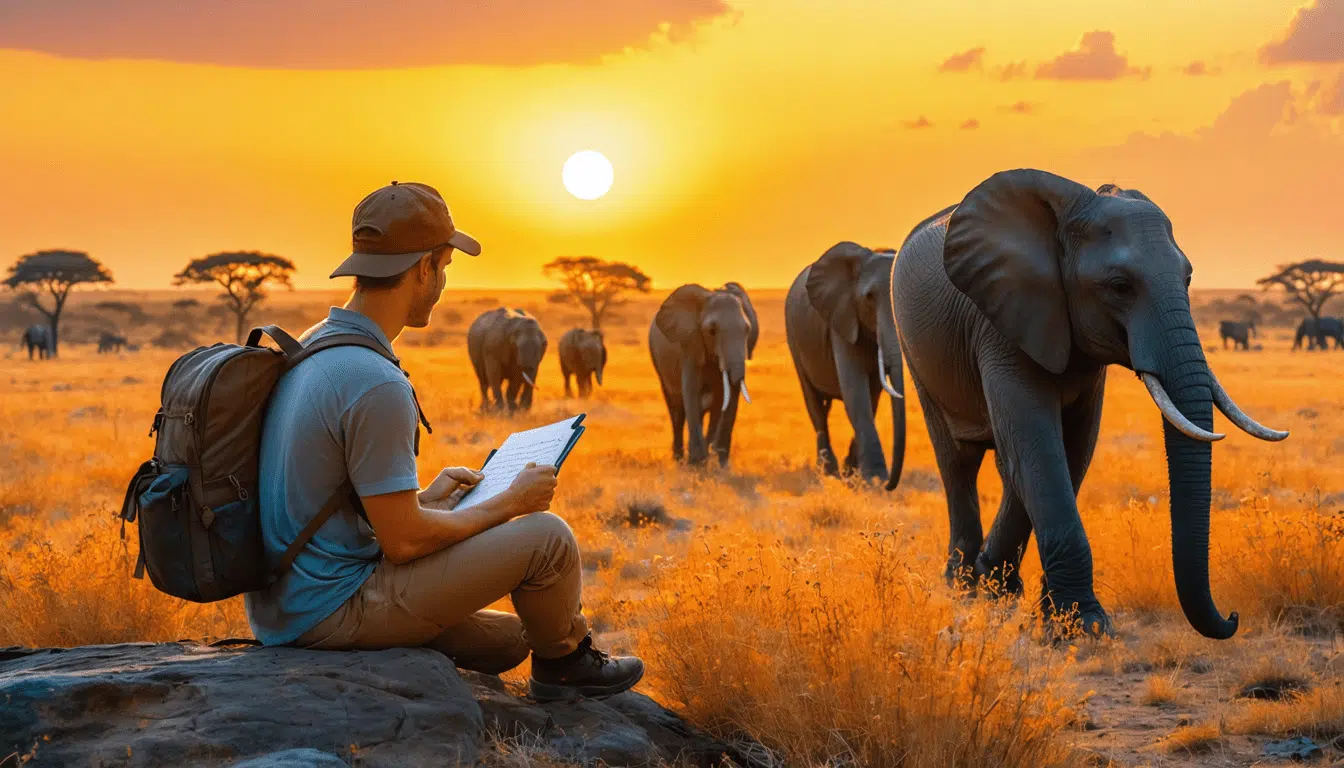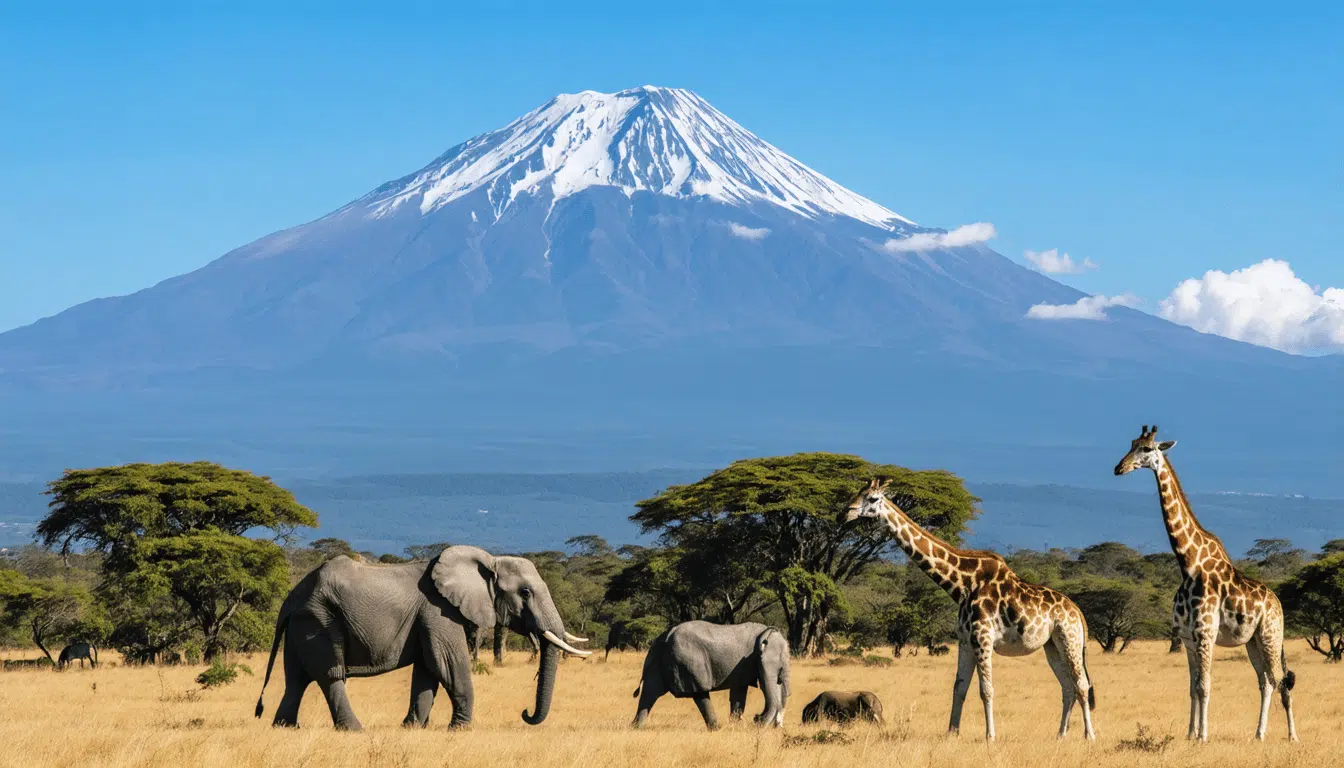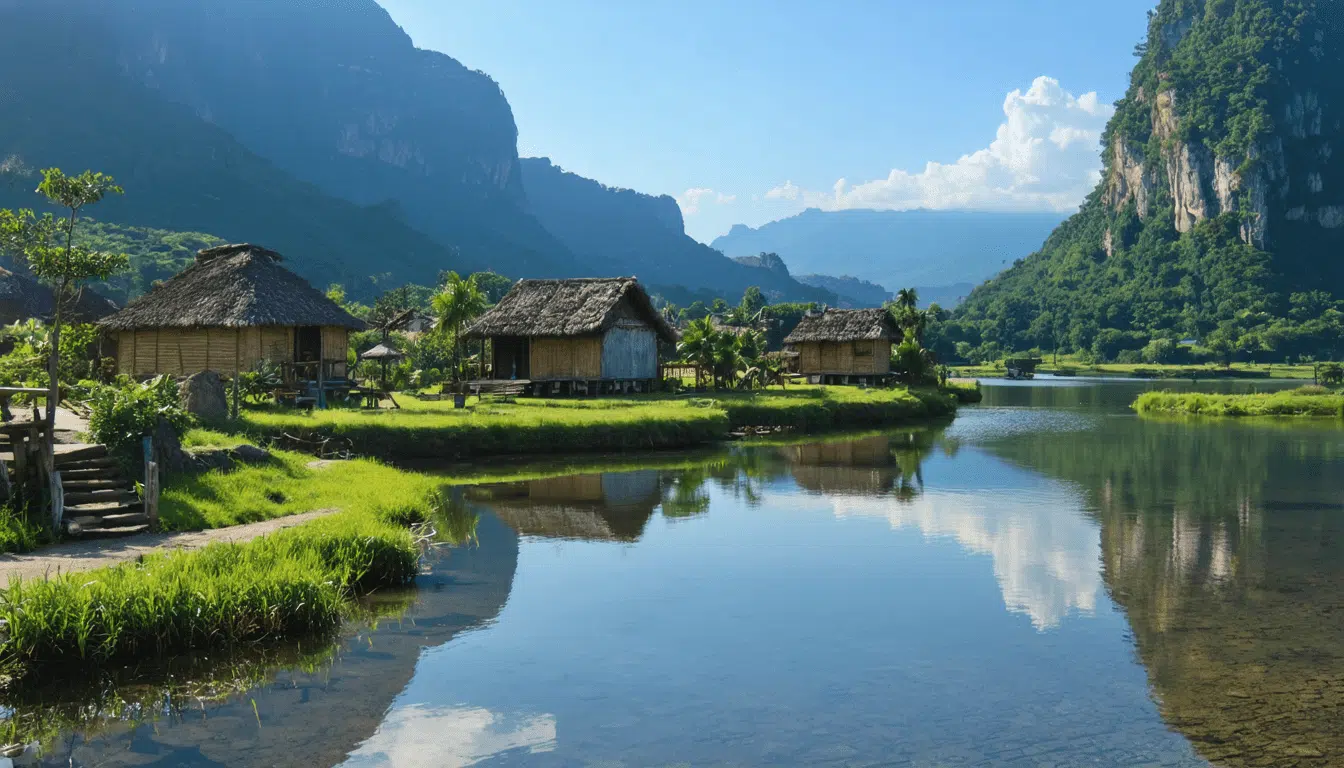Our 6 Best Kenyan Safari Tours of all time
Imagine a world where the air is filled with the earthy scent of the Savannah, the sun sets in a blaze of orange and red, and the soundscape is punctuated by the roar of a distant lion. Welcome to Kenya, one of the most sought-after safari destinations in the world. Now, if you’re reading this, chances are you’re considering dipping your toes into this wild adventure. But here’s a truth, plain and simple: not all safaris are created equal. Choosing the right tour can make your African dream something you brag about at every dinner party for years, rather than just a forgotten album of blurry photos.
Kenya, with its breathtaking landscapes and rich tapestry of wildlife, provides a canvas like no other for these adventures. But how do you sift through the myriad options to find one that truly embodies the magic of Africa? Well, that’s where we step in. We’ve done the legwork, the nitty-gritty research, and perhaps risked life and limb (okay, maybe not that dramatic) to bring you our top picks. These six safari tours we’re about to unravel aren’t just about seeing a lion or two; they’re about transformative experiences that stay long after your camera battery dies.
So, what makes these tours stand out from the rest? Is it the exclusive game reserves, the luxury lodges nestled amidst the wilderness, or the welcoming smiles of locals who share their stories and traditions with you? Perhaps it’s all of the above. And you know what? You’re not just paying for the sights; you’re shaping memories, enriching your experiences, and maybe even finding a bit of yourself along the way. Stick with us, and let’s dive into the wild together, making sure every moment is worth your while.
Introduction to Kenyan Safaris
Overview of Kenya as a Premier Safari Destination
Ever dreamed of waking up to the sounds of lions roaring in the distance, or perhaps imagining yourself sipping coffee while watching the sunrise over vast, untouched savannahs filled with wildlife? If so, a Kenyan safari might just be calling your name. Known as the birthplace of safari, Kenya is a tantalizing mix of stunning landscapes, rich culture, and unparalleled biodiversity.
You see, Kenya isn’t just any safari destination; it’s where the safari experience was born, crafted, and perfected. It’s the epitome of adventure, a place where the Big Five roam freely, and witnessing the Great Migration is not just a possibility but a highlight. Kenya stands head and shoulders above most destinations when it comes to offering rich, authentic wildlife experiences.
Importance of Selecting the Right Safari Tour to Enhance the Experience
Now, why is this important, you ask? Imagine this: you’ve saved, planned, and built up anticipation for the trip of a lifetime, only to find yourself cramped in an uncomfortable vehicle or, worse, sipping lukewarm tea in a camp that doesn’t meet your expectations. Choosing the right safari tour can mean the difference between a lackluster vacation and a truly remarkable adventure filled with awe-inspiring moments.
My friend once found himself on a generic tour that promised much but delivered little. He missed the majestic wildebeest crossings by a couple of days and ended up with threadbare accommodations. While he didn’t have an altogether terrible time, his dreams of a perfect African adventure were definitely dampened. Don’t be like my friend. The right tour accentuates every aspect of the adventure—from expert guides who know just where to find that elusive leopard, to cozy camps that charm you with their warmth and hospitality. A well-chosen safari will ensure that not just your binoculars, but also your senses, are focused on the animals, sights, and sounds around you.
Brief Mention of Why These 6 Safari Tours Stand Out
So, why do our six selections for Kenyan safaris shine so brightly in the safari-studded sky? Let’s just say, calling them curated gems wouldn’t be going too far. Each tour has been handpicked not only for the extraordinary wildlife experiences they offer but also for their commitment to sustainable practices, expert-led guiding, and impeccable accommodation.
Think of them as the crème de la crème of safaris, each one offering an exceptional twist, whether it’s a balloon ride over the Mara or a walking tour that lets you stretch your legs and get up close and personal with nature. These tours craft opportunities not just to see but to truly feel Kenya—a difference that makes these adventures unforgettable.
So, as we dive deeper into what makes a Kenyan safari unlike any other and start breaking down these outstanding tours, bring a keen eye and an open mind. Ready for some vicarious travel? You bet! Let’s embark on this journey together.
Factors to Consider When Choosing a Kenyan Safari
So, you’re thinking about heading off on an African safari? Let’s face it, we’ve all found ourselves daydreaming about rolling landscapes, lions lazing in the sun, and maybe even that achingly perfect sunset. But, wait! Before you pack your khaki shorts and binoculars, let’s chat about a few things you might want to consider when choosing your Kenyan safari. After all, planning can be just as exhilarating as the adventure itself!
Wildlife Diversity: The True Stars of the Show
You don’t head into a safari just hoping to spot a lazy gazelle or two. Oh no, you want the whole kit and caboodle: elephants stomping through the bush, cheetahs streaking across the plains, and maybe even a hippo chilling in a waterhole. That’s where understanding the wildlife diversity of your destination comes in handy. A place like the Maasai Mara, known for the Great Migration, guarantees a spectacle of animals. Can you imagine missing out on that?
When I went on my first safari, I didn’t pay enough attention to this aspect. Sure, I saw some fantastic beasts, but I also learned there were so much more I could have seen had I picked a different reserve. Lesson learned! Different parks and regions offer different wildlife experiences, so research what each area is known for to match it to your wildest dreams.
Safety: Because Adventures Shouldn’t Be Hair-Raising
While the ideal safari has its share of adrenaline-pumping moments, nobody wants unnecessary danger tagging along. Ensuring the area you’re visiting is politically stable and the safari company abides by international safety standards is crucial. I always ask myself: Is the safari vehicle equipped with all safety measures? Are there communication devices in case of emergencies? Do they have professional relationships with medical facilities?
Remember, a reputable tour operator will put your safety first. Choosing one that’s well-reviewed and has a stellar safety record is always a smart move. It’s the same logic as reading Yelp reviews before trying new sushi, am I right?
Accommodation: Your Safari Home Away From Home
Alright, so you’ve spotted the Big Five and taken a hundred photos of giraffes against fiery sunsets. But where do you rest your weary head after a day in the bush? Accommodations can vary from rustic tents to luxurious lodges, each offering a different experience. I once stayed in a tented camp where I could hear hyenas cackling at night – thrilling but not something I’d recommend if you’re a light sleeper.
Luxury lodges, on the other hand, offer comfort with a touch of elegance, often including amenities like pools and spa services. Consider what level of comfort you desire, and remember that accommodation often enhances the overall experience. Whether you want to rough it out a bit or live in the lap of luxury, there’s something for everyone.
Those Invaluable Guides: Your Safari Sages
Let’s chat about the unsung heroes of the safari world: the guides. A knowledgeable guide can turn an ordinary wildlife sighting into an educational adventure that leaves you in awe. Believe me, the stories and insights they share can be the highlight of your trip. Imagine spotting a leopard thanks to a guide’s keen eyes or learning about the intricate social lives of elephants.
When choosing a safari, pay attention to how experienced the guides are. Do they have certifications? Are they local, knowing the land like the back of their hand? These guides can make or break your safari experience, so it’s worth ensuring you’ll be in capable hands.
Sustainable Tourism Practices: Protecting What We Love
In a world where conservation is paramount, choosing a safari that practices sustainable tourism is an integral part of planning. The last thing you want is to contribute to practices that harm the very wildlife you’ve come to admire. Look for companies that support conservation efforts, engage with local communities, and practice eco-friendly measures.
It’s both a personal decision and a collective responsibility. Supporting sustainable tourism means you’re contributing to the preservation of these beautiful ecosystems for future visitors and generations. Plus, it feels pretty good to know you’re doing right by the planet.
First-Time Safari Tips: Ready, Set, Adventure!
If it’s your first safari, the excitement can be both thrilling and a bit overwhelming. My advice? Pack light but smart. You’d be surprised how little you need beyond a good hat, sunscreen, and reliable footwear. Oh, and don’t forget your camera – you’ll want to capture every magical moment!
Safari seasons can also affect what you’ll see. The dry season typically offers the best wildlife viewing as animals cluster near water sources. But the green season provides lush landscapes and a different kind of beauty. So ask yourself: do you want those iconic drought-stricken vistas or the vibrant, verdant bush?
Remember, every safari experience is unique and profoundly personal. Take the time to consider what matters most to you. Then, let that be your guide as you embark on what could very well be the adventure of a lifetime.
Highlight of the 6 Best Kenyan Safari Tours
Oh, the thrill of embarking on a Kenyan safari! If you’ve ever dreamt of gazing into the eyes of a lion or witnessing the graceful stride of a giraffe, you’re in for a treat. Let’s dive into six safari tours in Kenya that will take your breath away.
Mara-Mara Spectacular: Into the Heart of the Wildebeest Migration
Imagine this: the sun peeking over the horizon, casting a golden glow over the vast plains of the Maasai Mara. On the Mara-Mara Spectacular tour, you’ll experience the magic of the Great Migration, where millions of wildebeests and zebras make their epic journey across the Mara River. Highlights include up-close encounters with the Big Five and sunset views that will leave you speechless. Ever wonder what it’s like to sleep in luxury tented camps while listening to the sounds of the savannah? Prepare yourself, because this tour promises exactly that.
African Splendor: Samburu and Beyond
Thinking of something a bit off-the-beaten-path? The African Splendor tour takes you to the rugged beauty of Samburu National Reserve. Here, you’ll encounter unique species like the Grevy’s zebra and the reticulated giraffe, which aren’t found in the southern reserves. Imagine sharing breakfast with elephants ambling by your lodge! This tour isn’t just about magnificent landscapes; it features cultural interactions with the Samburu people, offering you a glimpse into their fascinating traditions.
Luxury on Wheels: The Classic Train Safari
Yes, you read that right! Board a luxurious train that meanders through the spectacular landscapes of Kenya. This tour is perfect for those who love a blend of elegance and adventure. The Classic Train Safari commences in Nairobi and snakes its way to Mombasa, passing through the outskirts of Tsavo National Park. Enjoy the rock-n-roll of the train tracks with gourmet meals and plush compartments—how’s that for a change of pace?
Mountain & Mara Magic: A Perfect Blend
Ever pondered on combining the world of mountains and plains in a single safari? The Mountain & Mara Magic tour offers this unique blend by pairing the enchanting slopes of Mount Kenya with the wildlife-rich Maasai Mara. Trek through the lush forest trails of Mount Kenya and cap off your adventure with the heart-pounding spectacle of the Mara’s wildlife. It’s a surefire way to get the best of both worlds!
Coast to Safari: Combining Wildlife with Beaches
Who says you can’t have both? The Coast to Safari tour is an enticing concoction of wildlife wonder and beach relaxation. Begin your journey with thrilling game drives in Tsavo West National Park, famous for its ‘red elephants’ due to the iron-rich soil. Then, unwind on the pristine beaches of Diani, sipping cocktails with the ocean breeze on your face. How about watching a glorious beach sunset after a day packed with adventures? Pure bliss!
Spirit of Kenya: The Ultimate Luxury Safari
If indulgence is your middle name, look no further than the Spirit of Kenya tour. This safari promises opulent experiences, from staying in award-winning luxury lodges to private game drives tailored to your interests. Picture yourself dining under the stars with a backdrop of acacia trees and maybe a distant roar echoing in the night. This is more than a tour; it’s a celebration of the very best that Kenya has to offer, leaving you with cherished memories tailormade for luxury lovers.
To lend some credibility to these dazzling descriptions, consider Alice, who embarked on the Mara-Mara Spectacular tour. She raves, It was more than I ever imagined! Witnessing the migration felt like a live-action documentary. I couldn’t have asked for a better tour guide who knew just how to make every moment special. And there’s Tom who still can’t stop talking about his Coast to Safari experience. He says, The contrast between rugged safaris and serene beaches was the vacation of my dreams. Truly the best way to experience Kenya. It’s testimonials like these that truly make these tours stand out.
So, are you ready to pack your bags and your sense of adventure? This overview of Kenya’s best safari tours is merely the beginning. Imagine the stories you’ll have and the memories you’ll make—safaris that offer encounters you’ll carry with you for a lifetime. Whether you seek the thrill of wildlife or the comfort of luxury, these tours are curated to give you the best Kenyan experience. Will you be joining the ranks of satisfied explorers soon?
Conclusion: Making the Most of Your Safari Adventure
So, you’ve set your sights on one of our top Kenyan safari tours, and you’re probably feeling that mixture of excitement and the looming question: What now? Let’s get down to brass tacks—how do you make the most of this once-in-a-lifetime experience? From booking tips to preparedness advice, I’ve got you covered. Picture yourself there, with the African sun warming your face and the thrill of spotting a majestic lion prowling nearby. Let’s dive in.
Booking Tips: Early Birds Get the Best Views
Firstly, do yourself a favor and book your safari well in advance. Trust me, once you’ve taken the leap, you don’t want to be scrambling for reservations. Popular tours fill up fast, especially during peak season when everybody and their uncle seems to want to witness the Great Migration or those jaw-dropping sunsets in the Maasai Mara. Planning ahead ensures you’re not left on the sidelines, wishing you’d acted sooner. Got your tour booked? Great! Now on to the fun stuff.
Preparing for the Journey: What to Pack and What to Expect
From someone who’s jammed a bottle of insect repellent into the corner of their backpack more times than they’d like to admit—let’s talk packing. You’ll want to bring a mix of lightweight clothes for those scorching afternoons and a few layers for the surprisingly cool evenings. And while the safari look (think khaki and wide-brimmed hats) might feel a bit cliché, you’ll appreciate the comfort and practicality once you’re knee-deep in the savannah.
Don’t forget those binoculars. After all, what’s a safari without getting up close and personal with wildlife from a respectful distance? And please, remember to fill that travel-sized first aid kit. You never know when a blister might threaten your plans of capturing the perfect photo of a rhino or a giraffe. Speaking of photographs, a decent camera or smartphone with extra memory space is crucial—there’s no such thing as too many elephant photos.
Embracing the Unpredictability and Magic of the Wild
Here’s the thing about safaris: the magic lies in the unpredictability. You may have expectations of sighting the Big Five every day, but sometimes it’s the unplanned moments—a surprise encounter with a troop of baboons or the serene silence of a sunrise—that truly capture your heart. Embrace a flexible mindset. It’s nature, after all, not a scheduled performance.
Remember to also engage with the incredibly knowledgeable guides. Their stories and insights can often be as captivating as the wildlife itself. That said, if you have questions about sustainable practices or local conservation efforts, don’t be shy. These conversations not only enhance your trip but also deepen your appreciation of the incredible ecosystems you’re privileged to explore.
Protecting Yourself and the Environment
And let’s touch on something that’s both personal and global: safety. Protecting yourself is essential, so don’t skimp on travel insurance. It’s a small price to pay for peace of mind when you’re halfway across the globe. And while you’re looking out for yourself, think about the environment too. Be mindful of your impact. Follow your guide’s instructions on how to behave in the parks, respect wildlife, and try to leave as little trace as possible. After all, the goal is to preserve these stunning landscapes for future generations of safari-goers.
Final Thoughts: Safari So Good
By now, you’re probably imagining yourself perched in a safari jeep, camera in hand, ready to capture the beauty of Kenya’s landscapes. You’ve done the hard part—choosing from those outstanding tours we laid out. Now it’s up to you to make every moment of your adventure count. So go ahead, dive into the experience with an open heart.
Kenya is waiting, ready to share its wonders with you. Happy travels, and here’s to a safari adventure you’ll reminisce about for years to come!
Embarking on a Kenyan safari is like stepping into a nature documentary, with endless horizons filled with grazers, predators, and everything in between. As we wrap up our journey through the six best Kenyan safari tours, there’s a sense of adventure still lingering in the air. These curated experiences promise not just breathtaking wildlife spectacles but also luxurious lodgings and immersive cultural exchanges that are second to none.
Just imagine waking up to the sound of elephants trumpeting in the distance or an exhilarating game drive at dusk with a golden sunset caressing the savannah. That’s the kind of magic we’re talking about! Each safari we’ve highlighted brings something unique to the table, whether it’s an exclusive game reserve, a luxury lodge nestled in the heart of the wilderness, or the chance to learn from local Maasai communities. They all promise an adventure that’s both unforgettable and enriching.
So, how do you make the most of your safari adventure? First things first—secure your spot on one of these well-rated tours and double-check the itinerary to ensure it aligns with your wildlife bucket list. Are you a first-time safari-goer? Be sure to ask plenty of questions; after all, the more prepared you are, the more you’ll enjoy the journey. And don’t forget to pack those binoculars and a sense of curiosity—we are talking about the wild, unpredictable savannah!
Embrace the unpredictability, the stories you’ll hear from seasoned guides, and the chance encounters with wildlife. In the end, a Kenyan safari is about more than just ticking off the Big Five; it’s about connecting with nature in its purest form and leaving with memories that last a lifetime. So go on, book that tour, and surrender to the adventure of a lifetime—one that promises to be as vast and varied as the Land of the Maasai itself. Safe travels, adventurer, and may your safari be filled with wonder and wild inspiration!
